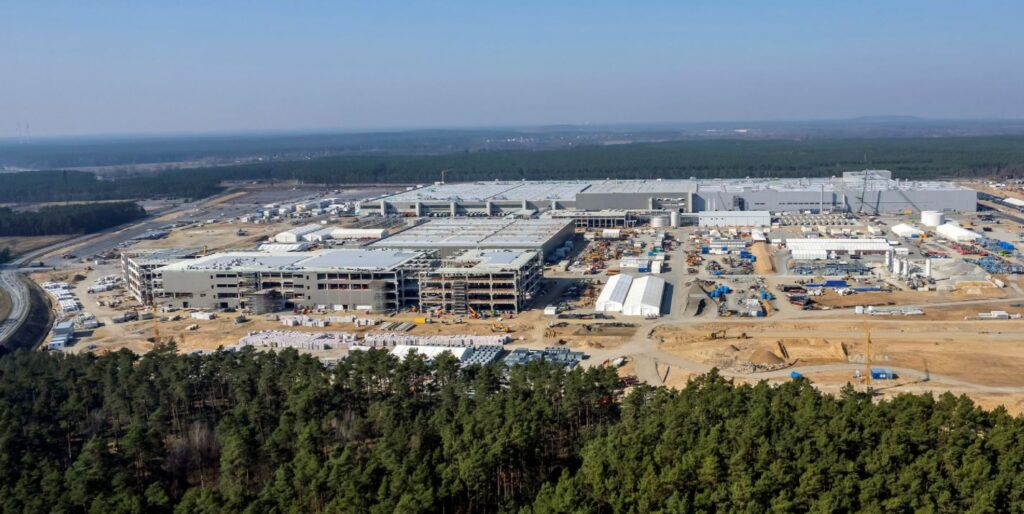Tesla will on Tuesday deliver to customers the first 30 Model Y cars made at its 5 billion euro ($5.5 billion) Gruenheide plant, launching its first European production hub that is the biggest investment in a German car factory in recent history.
Chief Executive Elon Musk arrived in Berlin on Monday for the event, tweeting: “Excited to hand over the first production cars made by Giga Berlin-Brandenburg tomorrow!”
The chosen clients will receive the Model Y Performance configuration, a vehicle costing 63,990 euros with a 514 km (320 miles) range, Tesla said, adding new orders from the plant could be delivered from April.
German Chancellor Olaf Scholz will attend the event that Musk had hoped would happen eight months ago. Even so, local authorities said it had still been completed relatively swiftly.
“Some people didn’t trust Germany could do this,” regional finance minister Joerg Steinbach said on rbb radio on Tuesday. “We showed the world.”
More than 3,000 of the plant’s expected 12,000 workers have been hired so far, Tesla said on Tuesday.
The delay in licensing the plant meant Tesla had to service earlier European orders from its Shanghai factory, driving up logistics costs.
“Makes a huge difference to capital efficiency to localize production within a continent,” Musk tweeted.
At full capacity, the plant will produce 500,000 cars annually – more than the 450,000 battery-electric vehicles that German rival Volkswagen (VOWG_p.DE) sold globally in 2021. It will also generate 50 gigawatt hours (GWh) of battery power, surpassing all other plants Germany.
For now, Volkswagen still holds the upper hand in Europe’s electric vehicle market, with a 25 per cent market share to Tesla’s 13 per cent. Musk has said ramping up production will take longer than the two years it took to build the plant.
JPMorgan predicted Gruenheide would produce around 54,000 cars in 2022, increasing to 280,000 in 2023 and 500,000 by 2025.
Volkswagen, which has already received 95,000 EV orders in Europe this year, is planning a new 2 billion euro EV plant alongside its Wolfsburg factory and six battery plants across Europe.
But its timeline lags Tesla’s, with the EV factory to open in 2026 and the first battery plant in 2023.
Tesla received the final go-ahead from local authorities on March 4 to begin production, provided it met several conditions, covering issues such as water use and air pollution control.
The carmaker had come close to losing its water supply contract when local environmental groups filed a complaint against the environmental ministry challenging the licence it granted to Tesla’s water supplier.
REUTERS




